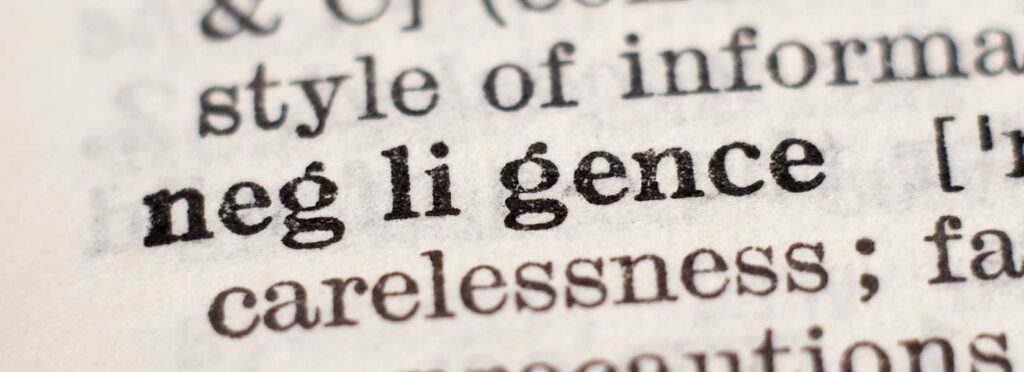In order to win any sort of personal injury lawsuit, you need to prove that the defendant was negligent. Of course, there are some exceptions to the rule. For example, if you’re attacked by a dog, there may be a local ordinance that holds the dog’s owner strictly liable. But, for the most part, negligence is the basis of personal injury cases. Generally speaking, to prove that someone is negligent, you need to show that they didn’t act the way any other reasonable person would have.
In order to prevail in your lawsuit, your Atlanta, Georgia personal injury lawyer needs to prove two things. First, they have to show that the defendant was at fault. Second, they need to prove that you suffered damages. Just because you’re involved in an accident doesn’t mean you’re automatically entitled to compensation. If your lawyer can’t show that you suffered actual damages, you have no case. For example, if you’re involved in a car accident but you aren’t hurt, you probably won’t have a case. If your car isn’t damaged and you don’t suffer any physical injuries, why would you sue?
In some cases, your Georgia injury lawyer will be able to prove that the defendant was not only negligent, but that he acted in a reckless or wanton manner. If this is the case, you may be entitled to additional damages. These cases are said to involve something called gross negligence. It’s a lot harder to prove gross negligence than it is ordinary negligence. Thankfully, your attorney knows how to do this. When you first meet with your local attorney in Georgia, they can let you know if this is an option for you.
How Does Your Atlanta Personal Injury Lawyer Prove Negligence?
In order to prove negligence, your attorney needs to demonstrate four (4) things. First, they need to show that the defendant owed you a duty of care. This isn’t all that hard to do. For example, if you’re in a car accident, all you have to show is the other driver owed you a duty of driving safely. At a minimum, they have to follow all traffic laws. The second thing you need to show is that the defendant breached this duty. This is one of the harder parts of your case. You have to show that the defendant acted unreasonably given the situation. For example, if someone was speeding, that would be proof that they’ve breached their duty. The hard part is proving that they were actually speeding.
The third thing you have to show is that you were injured. Your attorney will do this using copies of your medical records. They can also submit proof of any out of pocket costs you’ve experienced. Finally, the court will want to see evidence that your injuries were caused by the defendant’s breach. Unless there’s an intervening cause, this shouldn’t be that difficult.
What Constitutes Gross Negligence in Georgia?
It can be a lot harder to prove gross negligence as compared to ordinary negligence. In Georgia, gross negligence is when someone acts so recklessly that they don’t have any regard for the safety of others. Drunk driving is typically considered gross negligence. The special thing about these cases is that you may be entitled to special damages. These damages are referred to as punitive damages. They are awarded in cases where the judge wants to punish the defendant. They’re meant to deter the defendant (and others) from acting that way in the future.
Schedule Your Free Initial Consultation Today
If you think you’ve been the victim of negligence, you should call our office today. Take advantage of your free initial consultation right away. This way, you can sit down with someone who’s handled cases like yours before. Our personal injury attorneys in Georgia can answer any questions you may have. They can also give you an idea of what sort of damages you can demand.
Not everyone who comes into our office has a case. You can rest assured that our lawyers will be honest with you upfront. If you don’t have a strong case, they’ll let you know. But if we believe you’re entitled to damages, we’ll let you know that as well. You can bet the defendant will have lawyers working for them and you should too. Call and set up your free consultation today. You don’t pay a dime until you settle your case. And given the situation with COVID-19, we can always arrange for a telephone consultation instead.









